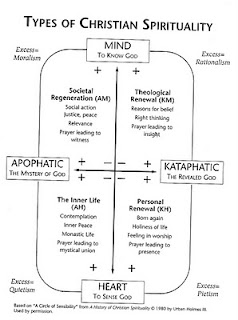Sweeny, J. (2014) Inventing Hell: Dante, the Bible and Eternal Torment. Jericho Books
It has struck me interesting that arguments for and against faith while supposedly in opposite camps, look surprisingly similar in their construction, particularly when shaped by a theology or non-theology that lends itself to cliche and caricature. For instance when strong assertions to deny faith or inspire faith use a Dante fueled understanding of hell as their primarily source.
Described as being both disturbing and enthralling Jon Sweeney's book is both useful and interesting. "With gripping narrative and solid scholarship, Jon Sweeny charts hell's 'evolution' from the Old Testament underworld Sheol, through history and literature, to the greatest influencer of all: Dante's Inferno. He reveals how the modern idea of hell if based mostly on Dante's imaginative genius-but in the process, he offers a more constructive understanding of the afterlife than ever before.
"Full of the mysteries of Greek mythology, philosophy, and ancient religions, Inventing Hell will:
Described as being both disturbing and enthralling Jon Sweeney's book is both useful and interesting. "With gripping narrative and solid scholarship, Jon Sweeny charts hell's 'evolution' from the Old Testament underworld Sheol, through history and literature, to the greatest influencer of all: Dante's Inferno. He reveals how the modern idea of hell if based mostly on Dante's imaginative genius-but in the process, he offers a more constructive understanding of the afterlife than ever before.
"Full of the mysteries of Greek mythology, philosophy, and ancient religions, Inventing Hell will:
- Show you that there was little agreement among Christians, before Dante, about the nature and extent of what we call Hell.
- Illuminate for you the concepts of afterlife that existed before Dante, from ancient Judaism, Virgil and Plato, the teachings of Jesus, the early church, Islam and medieval theologians.
- Demonstrate that Dante had various medieval apocalyptic sources to help him create the elaborate architecture of Hell that most people know today.
- Shine a clearer light on the sort of Hell that Dante created."
'Before we've done', Sweeney suggests, '...you may be shocked to realise that for seven hundred years we've simply taken Dante's word for it!' (pp 8)
This book has got me interested in :-
- Jewish thinking of Sheol rather than a Christian redaction;
- Virgil pagan vision of afterlife;
- Homer's and Hesiod's god Hades;
- Plato's myth of Er;
- What Socrates says about the immortality of the soul;
- Similarities of retributive afterlife in the Qur'an;
- The influence of political contemporary's in Dantes world;
- Aristotle and Cicero's ideas of eternal punishment and
- Aristotelian influence over medieval theologian Thomas Aquinas
Well worth a read!


Comments